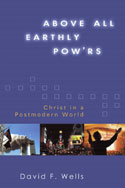In the early 20th century plenty of Christians came together forming interdenominational evangelical organisations. Instead of one of the thorough confessions of faith issuing from the Reformation, such as the Westminster, its derivatives (Baptist 1689, Congregational Savoy), Augsburg, Helvetic, Scots, Belgic, the Anglican Thirty-nine Articles, or the catechisms (Heidelberg, Westminster, Luther's Short, Genevan, etc.), they formed statements of faith of 10-12 sentence-long points.
This was against a background where elders of the confessional Protestant churches were being allowed to deny their denomination's Confession - Modernism was rife in the mainstream churches on both sides of the Atlantic. Some fought it with much effort and sacrifice within their denomination, frequently being effectively forced to secede from the denomination to ensure the continuation of the Confessional church. Others sought refuge in uniting with others of similar conservative beliefs and to this end formulated brief 10-12 point statements of faith, to be a list of 'fundamentals' of the faith. These were not to say that the fuller Confessions (and confessional differences) were unimportant, but in the face of modernist liberalism within the main denominations and the free churches, the
fundamentals acted as rallying points and tests of doctrinal purity.
That was exactly the historic role of the Confessions (from the time of creeds and councils onwards) - forming expressions of the faith in response to division for the sake of unity in truth, defining heresy and being necessarily selective about truth included. Frequently ignored by critics of formulations of confessions is that no Confession, creed or definition (e.g. the Chalcedonian) claimed to be a comprehensive expression of the gospel or the truth in general, recognising that while they summarised eternal truth, they did so in a manner limited to response to their historical context: to be used as a tool subservient to teaching the whole counsel of God.
Yet in Boice's great last appeal,
Whatever happened to the gospel of grace? and in Carl Trueman's latest Ref21
May Wages of Spin column, to name but two, evangelicalism's <20 point statements of faith are criticised in contrast to the confessions and catechisms from the Reform period, for example, Trueman commenting on the situation at Wheaton college wrote:
...the failure of Wheaton's founders to set the statement about scripture in a sufficiently elaborate doctrinal matrix rendered it ultimately more adequate as a psychological description of attitude towards scripture than as a doctrinal statement of what scripture is and how it should function. To the extent that this is true, to that extent evangelicalism is vulnerable of becoming more of a psychological attitude than a true confession of belief in God; and that renders such a forms of Christianity extremely unstable and vulnerable to attack. Indeed, when it comes to Christianity, the Devil is not in the details; on the contrary, I suspect he tends to live in the rather large gaps that mere Christianity's fear of detail tends to leave behind.
[Read the
whole thing] This is a charge which deserves to be given more careful consideration than our off-the-cuff reaction generally accords. Indeed, a liberal minister once pointed out to a member of my Christian Union committee that she could quite happily sign the
CU Doctrinal Basis, but that in signing it she would mean by it quite a different thing than what an evangelical might mean by it: her point being that the DB was quite pointless as a test of doctrine (and therefore also as an expression of unity). While there are those who have tried to argue similarly about assent to the WCF, they have found themselves much more hard pressed to do so given its detail. So we find Carl Trueman commenting
...it is only in theology's elaborated, particular manifestations that we can give even the individual doctrines any meaningful and stable content.
Yet this statement of the problem of evangelical bases in contrast to the Reformation confessions surely also indicates the answer to the problem, and an answer broader than that of returning to the detailed confessions of the 16th & 17th centuries. The brief, <20 point evangelical bases do not provide a thorough statement of faith out of context, and the problem only comes when they are implied to do so by their usage. That is to say, whereas a statement of faith is in some sort definitive, it only operates effectively as such when expounded in context. So we may say that the early Christian creed, "Jesus is Lord and Saviour" was definitive of a Christian - given the context that the universally accepted and proclaimed credo of the day was "Caesar is Lord and Saviour" and the Jewish context of ascribing to YHWH sole Lordship and salvation: the statement spoke theological, social and political
volumes in context. If we take it out of context however, we can make it say little if we so require. Yet we do not see the apostles drawing up analytically logical Confessions of Faith to deal with this potential problem, but rather,
in every situation they expound the whole counsel of God, and noticeably in a framework centred on the death and resurrection of Jesus Christ, for our sins, according to the Scriptures. Drawing up such Confessions, systematic theologies etc. is of course far from wrong, but I highlight that contextualising the brief creed by faithfully expounding Scripture means that such are not necessary.
And so the main problem does not lie intrinsically in our evangelical bases in contrast to the Reformation Confessions of Faith, even if the former are recognisably weaker to some ends; the problem occurs if either of these becomes divorced from or a substitute to expounding and living the whole counsel of God. For example, the CU Doctrinal Basis refered to earlier serves as a reminder, commitment and guide to preaching and living the whole counsel of God in the gospel-centred framework as I said above. It serves this role for the community of believers who find themselves living and working together in the (artificially mono-generational) context of university life, and so is a basis for their unity for growth and outreach together in that sitation. It serves as a commitment and reminder that this unity for growth and outreach is gospel birthed, gospel focussed and gospel shaped. However its definitive value assumes a context of those (student) believers studying, growing in and declaring the whole counsel of God as part of the church (locally expressed in various all-age, all background congregations). Its effectiveness is in a mission context, not divorced from the church whole. When Paul wrote to the Corinthian church that he had determined to know nothing among them but Christ and him crucified in his 'mission' there, evidently, he did not mean that other things were unimportant or that he hadn't mentioned them: but his preaching had been defined by this gospel summary in as far as it had been birthed, focused and shaped by this gospel summary.
By all means, let us have pointed beliefs. But let those points serve as a reminder, committment and guide to preaching and living the whole counsel of God in the gospel-centred framework.







